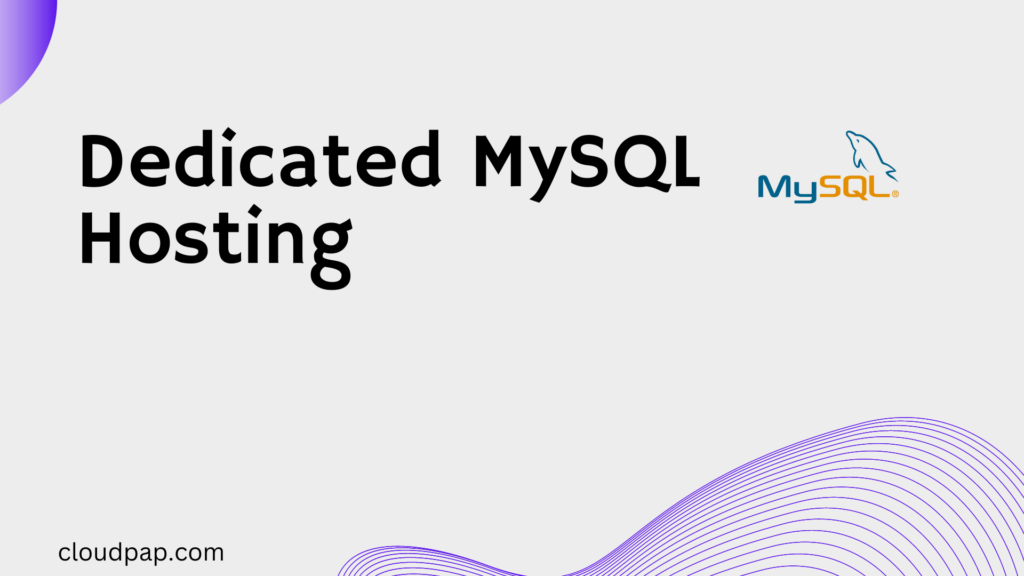Are you looking to start your own business in the tech industry?
You should consider cloud computing!
Thanks to the rise of remote work and digital transformation, cloud computing has become an essential component for businesses across all industries.
The market for cloud services is expected to reach $623.3 billion by 2023, creating ample opportunities for entrepreneurs to capitalize on this growing trend.
In this article, we have compiled 20 profitable cloud computing business ideas that can help you tap into this lucrative market.
Whether you are an experienced tech professional or a newcomer to the industry, there is something for everyone on this list.
So read on and get inspired to start your own successful venture in cloud computing!
Idea I. Software as a Service (SaaS) Ideas:
SaaS solutions have gained immense popularity due to their accessibility, flexibility, and ease of use. Here are some enticing business ideas within the SaaS realm:
A. Cloud-Based Project Management Solutions:
Efficient project management is crucial for businesses of all sizes. Cloud-based project management solutions streamline team collaboration, enabling seamless task management, document sharing, and real-time updates.
And integrating with popular project management tools like Asana or Trello, these solutions offer a comprehensive and centralized platform to enhance productivity and ensure project success.
Teams can easily track project progress, assign tasks, and communicate effectively, regardless of their physical location.
B. Customer Relationship Management (CRM) Systems:
Maintaining strong customer relationships is essential for business growth. Cloud-based CRM systems provide an effective means of managing customer interactions, consolidating customer data, and automating marketing campaigns. These solutions enhance customer engagement and retention by enabling businesses to personalize interactions, track customer preferences, and provide tailored experiences. Customizing CRM solutions for specific industries allows for specialized functionalities and workflows that cater to the unique needs of diverse businesses.
C. Cloud-Based Accounting Software:
Accounting processes can be time-consuming and complex. Cloud-based accounting software simplifies financial management by automating tasks such as invoicing, expense tracking, and financial reporting.
These solutions offer real-time data and analytics, empowering businesses to make informed financial decisions, monitor cash flow, and maintain compliance.
With cloud-based accounting software, businesses can access financial information anytime, anywhere, ensuring accurate and up-to-date financial records.
D. Cloud-Based Human Resources (HR) Management Systems:
Efficient HR operations are crucial for businesses to effectively manage employees. Cloud-based HR management systems simplify HR processes by centralizing employee data, facilitating efficient leave and attendance management, and automating workflows. These systems often incorporate advanced features like payroll processing and benefits administration, streamlining administrative tasks and ensuring compliance with employment regulations.
If businesses can leverage cloud technology, they can enhance employee management, improve communication, and streamline HR operations.
Idea II. Infrastructure as a Service (IaaS) Ideas:
IaaS provides businesses with virtualized computing resources over the internet, eliminating the need for physical infrastructure. Let’s explore some lucrative business ideas within the IaaS domain:
A. Cloud-Based Disaster Recovery Solutions:
Data protection and business continuity are critical for organizations in today’s digital landscape. Cloud-based disaster recovery solutions offer scalable and cost-effective options for businesses to safeguard their data, applications, and systems. These solutions replicate data and infrastructure in the cloud, ensuring minimal downtime and quick recovery in the event of a disaster. With cloud-based disaster recovery, businesses can minimize data loss, maintain operations, and recover swiftly from disruptive events.
B. Virtual Desktop Infrastructure (VDI) Services:
The rise of remote work has increased the demand for virtual desktop infrastructure services. VDI enables businesses to provide secure access to applications and data from any device or location, facilitating remote work capabilities and enhancing productivity. With cloud-based VDI services, employees can access their virtual desktops, applications, and files, allowing them to work efficiently and collaborate seamlessly. This flexibility reduces the need for expensive hardware investments and simplifies IT management.
C. Cloud-Based Data Storage and Backup Solutions:
Businesses are generating vast amounts of data, necessitating efficient storage and backup solutions. Cloud-based data storage and backup services offer scalable and reliable options for organizations to store their data securely. These solutions leverage the cloud’s elasticity to accommodate growing data volumes, eliminating the need for on-premises storage infrastructure. Additionally, automated backup and recovery processes ensure data protection and streamline the backup management process, freeing up valuable time for businesses to focus on core operations.
Read also: Disaster Recovery in Cloud Computing: Safeguarding Your Business in Times of Crisis
D. Cloud-Based DevOps Environments:
DevOps practices have become integral to software development and operations. Cloud-based DevOps environments provide a collaborative platform for development and operations teams to work together seamlessly. These environments facilitate code collaboration, version control, automated testing, and continuous integration and deployment. By leveraging cloud resources, businesses can automate software deployment, manage infrastructure efficiently, and enhance the agility of their development processes.
Idea III. Platform as a Service (PaaS) Ideas:
PaaS offers a complete development and deployment environment in the cloud, enabling businesses to build, test, and deploy applications efficiently. Let’s explore some captivating business ideas within the PaaS landscape:
A. Cloud-Based Mobile App Development Platforms:
The mobile app market continues to flourish, presenting immense opportunities for businesses.
Cloud-based mobile app development platforms simplify the app development process, providing developers with a comprehensive set of tools, frameworks, and APIs.
These platforms enable rapid prototyping, cross-platform compatibility, and integration capabilities, empowering developers to create robust and feature-rich mobile applications.
Thanks to these cloud-based mobile app development platforms, businesses can accelerate their app development cycles and reach wider audiences.
B. Cloud-Based Web Hosting Services:
A strong online presence is crucial for businesses across industries. Cloud-based web hosting services offer scalable and reliable hosting solutions for websites and web applications. These services provide advanced security features, such as SSL certificates, firewalls, and DDoS protection, ensuring secure and uninterrupted website operations. Additionally, cloud-based hosting solutions offer high scalability, enabling businesses to handle traffic spikes efficiently and provide a seamless user experience.
C. Cloud-Based Data Analytics Platforms:
Data analytics has become a vital component of business decision-making.
Cloud-based data analytics platforms enable organizations to analyze large datasets, extract actionable insights, and uncover valuable patterns and trends.
Leveraging machine learning and artificial intelligence algorithms, these platforms provide advanced analytics capabilities, empowering businesses to make data-driven decisions, optimize processes, and gain a competitive edge.
Harnessing the power of cloud-based data analytics platforms, helps businesses to unlock the value hidden within their data and drive innovation.
D. Cloud-Based IoT (Internet of Things) Platforms:
The Internet of Things (IoT) has transformed various industries, creating new possibilities for interconnected devices and applications. Cloud-based IoT platforms play a pivotal role in enabling the connectivity and management of IoT devices. These platforms provide features such as device provisioning, data ingestion, and real-time analytics.
Offering robust security measures, scalability, and data processing capabilities, cloud-based IoT platforms empower businesses to harness the potential of IoT technologies and develop innovative IoT applications.
Idea IV. Cloud Consulting and Integration Services:
Businesses often require expert guidance and support when adopting cloud technologies. Here are some key business ideas within cloud consulting and integration services:
A. Cloud Migration Consultancy:
The transition to the cloud can be complex, requiring careful planning and execution. Cloud migration consultancy services assist businesses in transitioning their infrastructure, applications, and data to the cloud. These services involve conducting thorough risk assessments, designing migration strategies, and ensuring minimal disruption to business operations during the transition. Cloud migration consultants bring their expertise to the table, helping organizations navigate the intricacies of cloud migration and ensure a successful and seamless transition.
B. Cloud Security Consulting and Solutions:
Data security is a top concern for businesses leveraging cloud computing.
Cloud security consulting and solutions address these concerns by providing comprehensive security assessments, implementing robust security measures, and ensuring compliance with industry regulations. These services encompass identity and access management, encryption, threat detection, and incident response.
By partnering with cloud security consultants, businesses can fortify their cloud environments, protect sensitive data, and mitigate potential security risks.
C. Cloud-Based App Integration Services:
Integrating cloud applications with existing systems is crucial for seamless data flow and process automation.
Cloud-based app integration services enable businesses to connect various cloud-based and on-premises applications, facilitating efficient data exchange and synchronization.
These services involve API integration, data mapping, and workflow automation, ensuring smooth integration between different systems. With cloud-based app integration services, businesses can streamline their operations, improve data visibility, and enhance overall efficiency.
Idea V. Niche Cloud Services:
Beyond the traditional service models, several niche cloud services have gained traction. Let’s explore some unique and innovative cloud-based business ideas:
A. Cloud-Based Video Streaming Services:
Video streaming has experienced exponential growth, presenting opportunities for businesses to deliver high-quality video content to global audiences. Cloud-based video streaming services offer secure and scalable platforms for businesses to host, manage, and distribute their video content. These services provide adaptive streaming, content delivery networks (CDNs), and monetization options, enabling businesses to reach a vast audience and deliver immersive video experiences.
B. Cloud-Based Gaming Services:
The gaming industry has witnessed a significant shift towards cloud-based gaming services.
These services leverage cloud infrastructure to provide gamers with low-latency, on-demand gaming experiences. Cloud-based gaming platforms eliminate the need for expensive gaming hardware, as games are streamed directly from the cloud to any device with an internet connection.
C. Cloud-Based Healthcare Solutions:
The healthcare industry is embracing cloud computing to store and analyze medical data securely. Cloud-based healthcare solutions offer a range of services, including electronic health record (EHR) storage, telemedicine platforms, and remote patient monitoring systems. These solutions enable healthcare providers to streamline operations, enhance collaboration, and improve patient care.
D. Cloud-Based E-Learning Platforms:
With the increasing demand for remote education and e-learning initiatives, cloud-based e-learning platforms have gained prominence.
These platforms offer comprehensive solutions for educational institutions and organizations to deliver remote education, online courses, and interactive learning experiences.
And if you can integrate multimedia content, interactive features, and collaborative tools, cloud-based e-learning platforms provide engaging and personalized learning experiences for students of all ages.
Read also: How to Start a Cloud Business: Everything You Need To Know
Wrap
In conclusion, the world of cloud computing offers a myriad of business opportunities across various service models, including SaaS, IaaS, PaaS, and niche cloud services.
The growing significance of cloud computing, coupled with advancements in technology, presents entrepreneurs with exciting prospects to explore. When considering cloud computing business ideas, it is essential to evaluate market demand, scalability, and innovation.
Embracing the potential of cloud computing and leveraging its capabilities, businesses can embark on successful ventures in this dynamic and ever-evolving industry.
The cloud computing landscape is ripe with opportunities, providing a gateway to the future of digital transformation.






